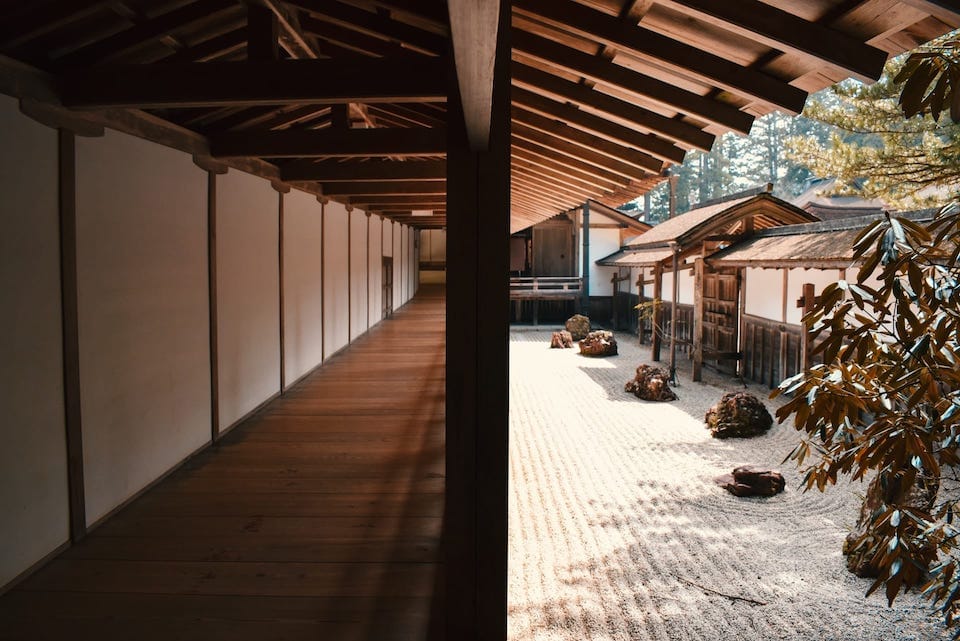Living a Life of Example, Living with Intention
In my last post, I discussed the concept of Be, Do, and Action goals, and how creating these help someone find and create a life of purpose. These goals help you become type of person you’d like to be. Be goals help form the central, self-organizing aim for your life – each one is a life purpose.
Be goals are aligned to our self-affirmations and life purpose. Be goals remind us why our Do goals are worth achieving. Action goals are how we achieve our Do goals. Here’s a cleaned up version of my Be, Do, and Action goals.
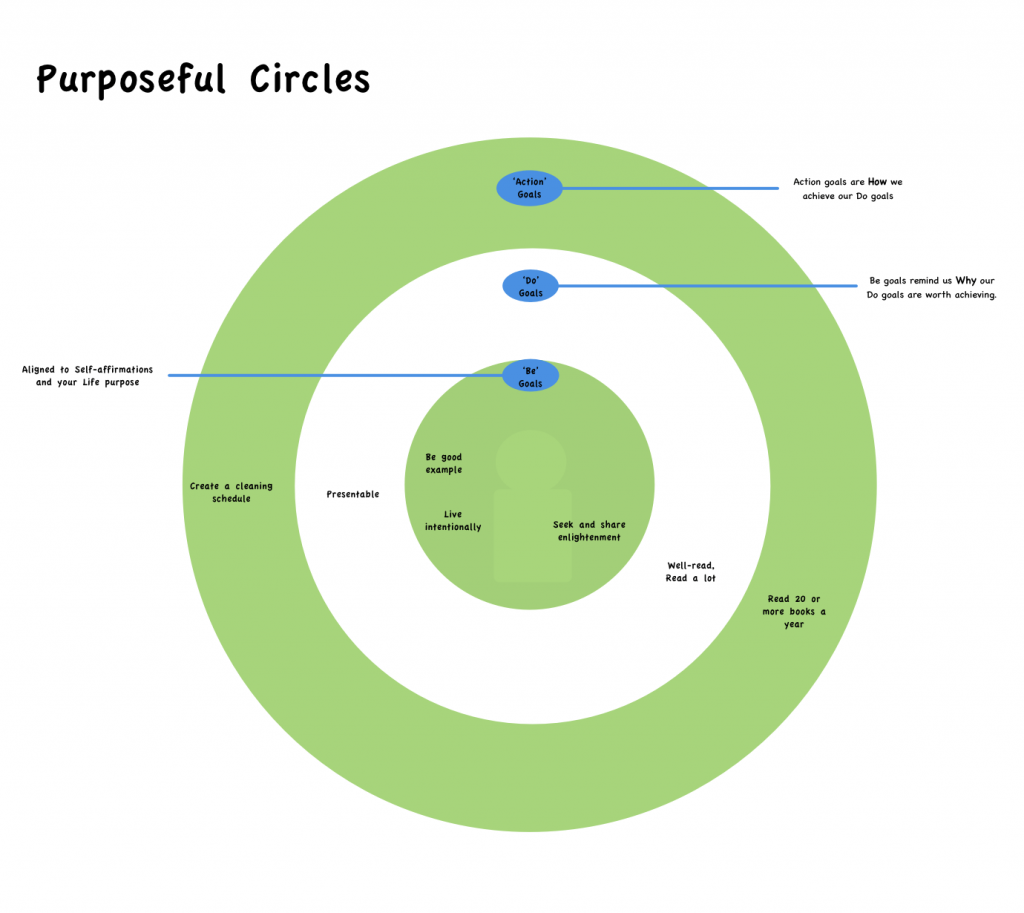
Two of my Be Goals included living a life of example and living with intention. (I’m not sure if “life of example” is the correct way to put it, but that’s what I came up with for now.) One way I thought of to be a good example was to be presentable; this is my Do goal.
Being presentable can mean many things. I tried to brainstorm about how to achieve this. One action I came up with was cleaning. I liked the idea of cleaning, but it was a bit vague. To create my action goal, what the professor calls a “crispy” behavior, I needed to be more specific.
What I came up with was a cleaning schedule, which has so far turned out pretty well.
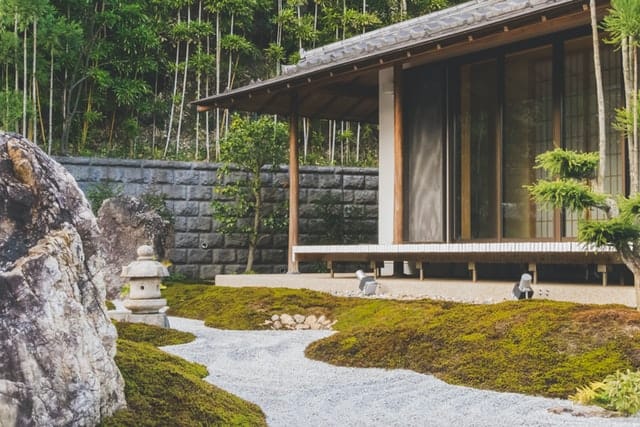
Why Cleaning
I chose cleaning as helping me achieve my life purposes of living with intention and living a life of example for two reasons.
Meditation is all about being intentional and focusing your mind. Taking a meditative approach to cleaning, seemed like a great way to put that goal into action.
The other reason is that a clean home is presentable. I wanted to feel that if anyone walked at any moment, they could see I had a clean and presentable home. It was a great example and reflection on the type of person I want to be.
Cleaning and Mindfulness
The cleaning schedule borrows from the cleaning examples I found in the book A Monk’s Guide to a Clean House and Mind. The monk who wrote the book explained that his monastery uses a particular schedule for certain activities like when to shave their heads or mend their clothes.
I heard about the monk and this book after attending the Japan Society Talks event Clean House, Clear Mind: A Buddhist Monk’s Wisdom, on Wednesday 27 March, 2019.
The book, which I read twice, focuses on cleaning as a meditative practice. It gives advice on how to clear the mind when cleaning.
When I first read the book, I was obsessed with cleaning. And I did feel lighter having dusted everything and wiped everything. It’s amazing how much and where dust accumulates.
After the online course, I was able to connect cleaning with my personal values. Seeking to solidify specific actions to help me live my values. My cleaning schedule consists of 2 calendars and a separate inspiration page.

Schedules for a Clean Home and Mind
To create the calendars, I used InDesign. The fonts are Letter Gothic Std and Garamond. I created generic versions, so they can be downloaded for your own use.
Daily and Monthly Schedule
The first schedule lists tasks to be taken care of on a daily basis and monthly basis.
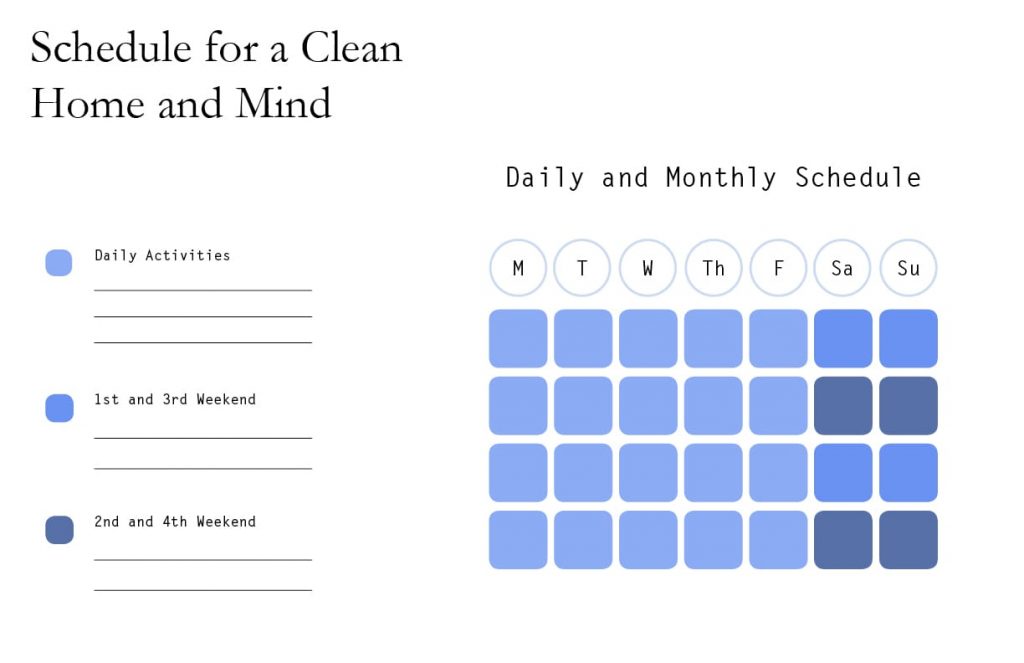
Day to Day Schedule
The second schedule includes tasks that track close to the advice in the book. I split the 3 and 8 days into tasks focused on increasing light and reflections.
The second set of tasks, for 4 and 9 days, includes events focused on fixing things and more cleaning activities, like vacuuming.
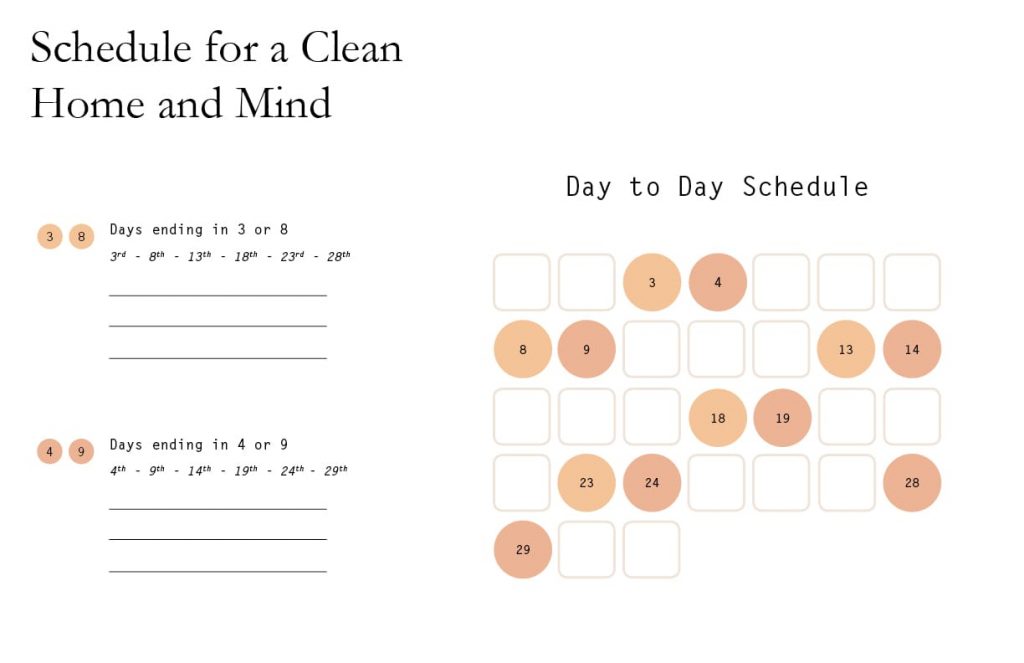
Inspiration Page
I thought it was important to keep in mind the mindset for why cleaning mindfully is important. The book refers to Zengosaidan which is a Buddhist concept focused on living in the moment, and not letting worries about work that is to be done or past failures weigh you down in them moment.
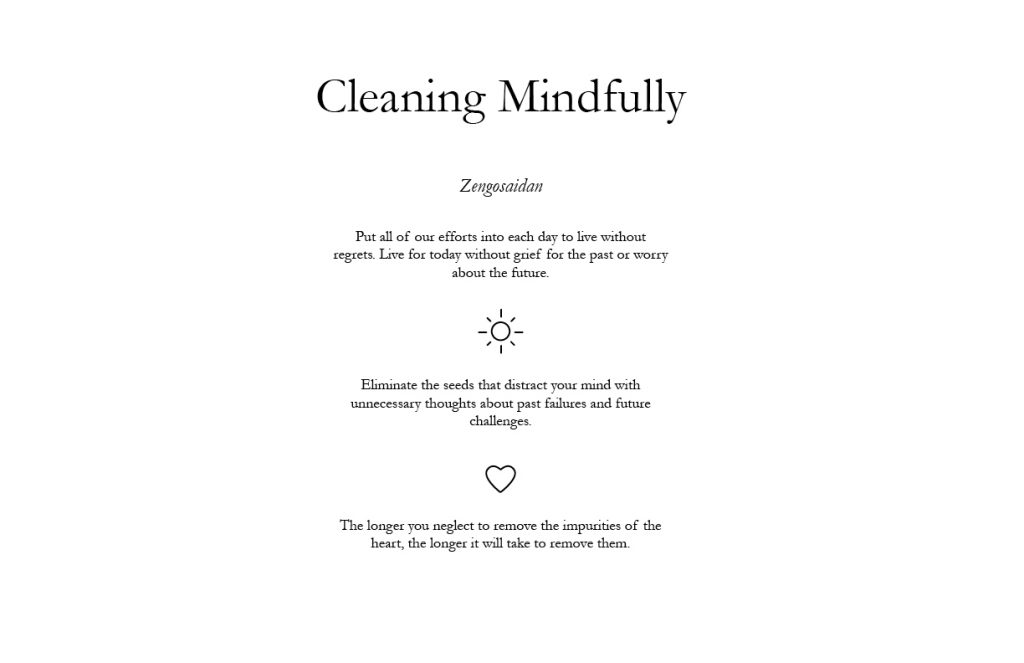
Put all of our efforts into each day to live without regrets. Live for today without grief for the past or worry about the future.
Eliminate the seeds that distract your mind with unnecessary thoughts about past failures and future challenges.
The longer you neglect to remove the impurities of the heart, the longer it will take to remove them.
Shoukei Matsumoto, “A Monk’s Guide to a Clean House and Mind”
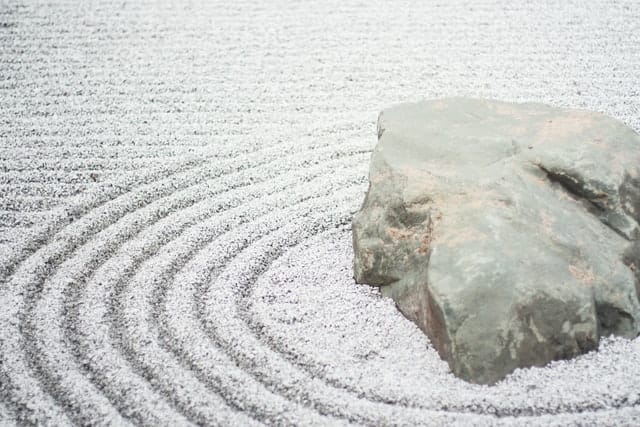
Eliminate the seeds that distract your mind with unnecessary thoughts about past failures and future challenges.
